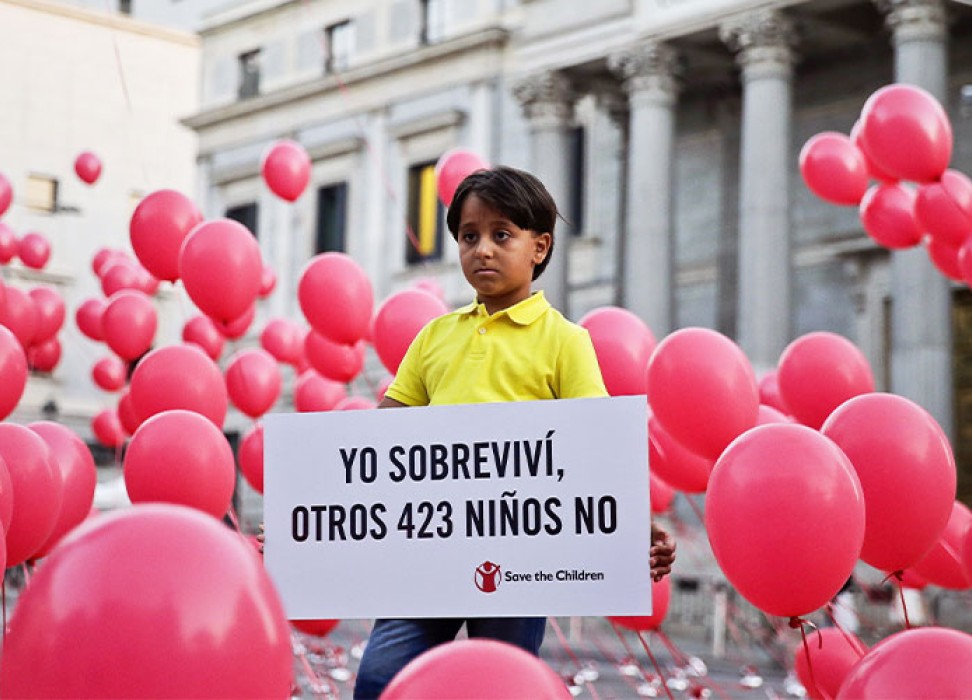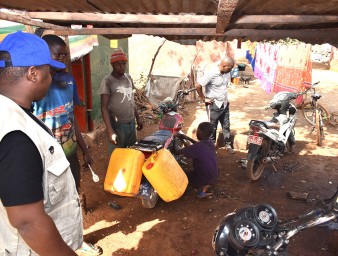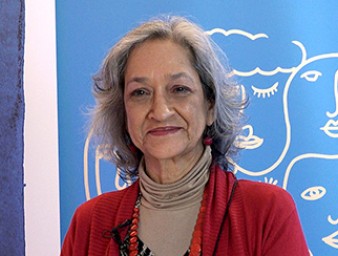Experts: States must stop failing children and strengthen family reunification
21 March 2022

Every year, more than 300,000 children are detained during the migration process and 77 countries are known to detain children for migration-related purposes, according to UN Human Rights.
The children who confront the journey alone don’t have the vital support they need to reunite with their family and often face perilous consequences along the way.
“A child who is separated from her or his family is at greater risk of suffering violence, abuse and neglect,” said Michele Bachelet, UN High Commissioner for Human Rights. “They may be forced to live alone, or to be cared for by people who do not have their best interests at heart.”
Bachelet made her comments during a high-level panel on family reunification at the annual full-day meeting on the rights of the child. The virtual panel was held during the Human Rights Council in Geneva, Switzerland.
A childhood lost
When Eduardo was 10 years old, he migrated to South Africa with his mother. During their migration, his mother fell ill and passed away. He was already separated from his father and siblings before he left his home country due to civil unrest.
“Growing up separated from family strips us of the joy and experiencing our childhood fully,” he said. “Many children like me do not know what it means or looks like to be raised in a family setting. This causes multiple psychological issues that have affected us and might still affect me till I reach adulthood.”
Some of the main challenges children who have been separated face are lack of documentation, proper shelter, limited education opportunities, love and parental guidance, Eduardo explained.
Eduardo, now 17, works with a children’s network in South Africa with the non-profit organization Save the Children South Africa as part of their child rights and migration program.
“These networks have given us, as children, a space and platform to contribute and be aware that our voices matter,” he said.
Daniela Reale, Global Lead for Refugees, Migrant and Displaced Children at Save the Children, said heart-breaking cases like Eduardo are far too common and parents often don’t have any other choice but to leave the care of their children to others. She shared a story about Rifat, 15, whose parents made him leave Syria on his own because they were worried that he would be forced to fight in the war.
“Rifat said that this was the ultimate choice his family could make to save his life,” Reale said.
Nearly 100,000 children have ended up in detention camps in the Syrian conflict zones, where boys as young as the age of 10 are presumed to be violent extremists or terrorists, according to Fionnuala Ní Aoláin, Special Rapporteur on the promotion and protection of human rights while countering terrorism.
“I have expressed particular concern at the more than 850 adolescent boys of various nationalities detained on multiple spurious grounds, sometimes with men, in the numerous detention centers of North-East Syria,” she said.
Felipe González Morales, the Special Rapporteur on the human rights of migrants called on States “to end child immigration detention and provide adequate alternative care and reception for all migrant children and their families, which promote children’s rights and well-being.”
He also urged States to strengthen existing national child protection and welfare systems and integrate unaccompanied migrant children into these systems without any discrimination. While family tracing is in progress and until children can be reunited with their families, family care arrangements should be viewed as temporary.
Children are also at risk of abduction, trafficking, and recruitment in conflict areas, according to Virginia Gamba, Special Representative of the Secretary-General for Children and Armed Conflict.
“Sadly, even when boys and girls manage to return to their families and communities, they are often rejected, stigmatized, and subjected to violence and discrimination,” she said. “In some instances, they are also denied the documentation needed to access basic services, such as health and education. In the case of foreign children, countries of origin often refuse to repatriate them, either alone or with their mothers due to security concerns.”
Strengthening child protection policies
Cornelius Williams, Director of Child Protection at UNICEF, explained that during armed conflicts, mass population displacements, and other humanitarian crises, children are at risk of separation from their families or other adults responsible for their care and support. In 2020, UNICEF and their partners registered over 180,000 unaccompanied and separated children for support across the world.
“The invisibility of these children means that the number is certainly much higher,” he said.
There are international laws and policies in place for States to follow, but they are being weakly implemented. Dr. Helen Durham, Director of International Law and Policy at the International Committee of the Red Cross (ICRC), called on all States to comply with the Optional Protocol on Children in Armed Conflict, and to endorse the Paris Principles on Children Associated with Armed Forces or Armed Groups.
“These instruments provide guidance so that children who have been recruited, detained, or who face prosecution are treated as victims entitled to their rights as a child,’ she said.
In the High Commissioner’s report on the rights of the child and family reunification, Bachelet outlined the child rights principles which can help safeguard policy and practice. She also stressed that States must strengthen policies and practices to reunite separated children with their families and recommended urgently following up on the matter at the global level.
“The international community of States cannot continue failing children,” Bachelet said. “For each and every child, the right to grow up in a family environment must be respected, protected and fulfilled.”
She also emphasized that the voices of children must be heard.
“When developing these guidelines, children’s own experience and opinions must be decisive in all procedures that affect them, and which may alter the course of their lives,” she said.
21 March 2022



